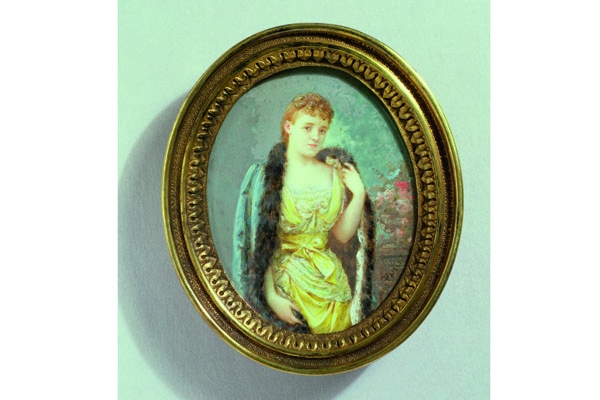‘I have finished Julius Caesar since I last wrote & I cannot say that it left a very glowing impression on me. It was too much like my own earliest attempts at tragedy to move me in the least.’ So wrote the 16-year-old Edith Wharton in 1878 to Anna Bahlmann, her governess and literary confidante. Wharton’s letters to Bahlmann only came to light in 2009. Edited and carefully annotated by Irene Goldman-Price, they chart Wharton’s progress from precocious adolescent, to brilliant New York socialite, to sophisticated queen of European literary society, to tireless charity worker, divorced, estranged from her family, struggling to ease the plight of refugees in a Paris torn apart by the first world war.
Anna Bahlmann, a dumpy, penniless German spinster, was the perfect governess for the young prodigy. The early letters show how skilfully Bahlmann fed her pupil’s literary appetite, introducing her to Norse, Greek, Roman, Arthurian and Germanic mythologies, discussing poets from Tasso to Browning to Longfellow, teaching her German and Italian and introducing her to contemporary debates about music, art and architecture as well as literature.
She was a sympathetic critic of Wharton’s own early efforts. Edith’s first novel, The Touchstone, was not published until 1900, but from her teens she submitted poems to literary magazines, usually offering them to her governess for approval before she did so. Bahlmann provided emotional support as well as intellectual nourishment; the early letters are intimate and affectionate.
In her autobiographical writings, however, Wharton’s ‘Dearest Tonni’ — the pet name derived from tante, both German and French for aunt — is all but written out of the script. Wharton chooses to portray herself as self-taught: ‘How I learned, no one ever knew.’ Irene Goldman-Price suggests that Wharton wished to ‘present herself as a literary orphan, a solitary child with a head full of stories and no one from whom to learn or with whom to share her thoughts.’ The novelist, it seems, was more interested in turning herself into a semi-fictional character than in giving credit where credit was due.
The close connection of the two women developed beyond the schoolroom years; Bahlmann became Wharton’s secretary and travelling companion. The bond lasted until Anna’s death in 1916; Edith proclaimed herself ‘heartbroken’ and commissioned her niece to design a handsome stone memorial. The letters reveal many instances of Wharton’s generous and considerate behaviour.
They also show that Bahlmann took on an unexpected role as unofficial ‘minder’ of Wharton’s husband. Teddy Wharton was his wife’s social equal, but he could not measure up intellectually. He was a manic depressive whose erratic behaviour eventually led to their divorce. As his state deteriorated, Wharton often relied on Anna Bahlmann to soothe and support him.
One cannot be sure that the surviving sequence of letters is complete, but on the evidence we have it seems that Wharton did not unburden herself to Bahlmann about her unsatisfactory, probably unconsummated marriage. Instead, she kept up a tiresome prattle about the numerous little dogs with which the Whartons tried to assuage their childlessness and their incompatibility.
Despite the many terms of endearment and gratitude, and despite Bahlmann’s remarkable intellectual gifts, Wharton and her governess were never equals. Wharton’s maiden name was Jones; the phrase ‘keeping up with the Joneses’ is said to refer to her father’s family, and despite the largeness of her mind and the breadth of her experiences, Edith Wharton never lost her caste.
My Dear Governess will be of great interest to Wharton scholars; it corrects many small previously held assumptions, showing, for instance, that in the early years Wharton’s relations with her mother were much more cordial than she later implied. The book also illuminates the subtleties of social difference in the lives of two highly intelligent women, one born with a silver spoon in her mouth, the other counting herself lucky with borrowed tin.
The correspondence is one-sided. Bahlmann’s letters to Wharton have not been found, so she must remain a shadowy figure, but Goldman-Price has made an excellent job of establishing her importance in the intellectual growth of one of the greatest American writers.






Comments